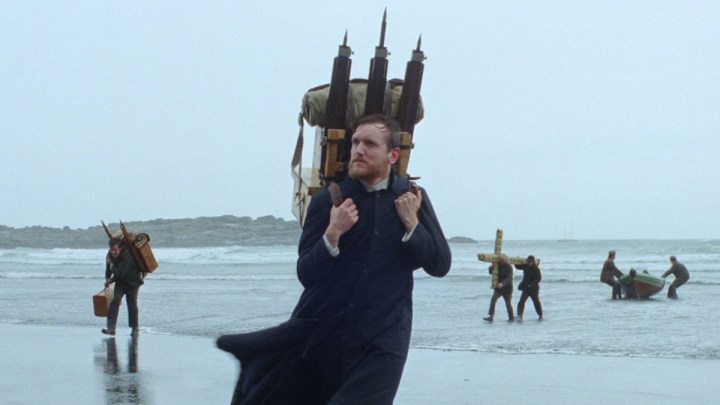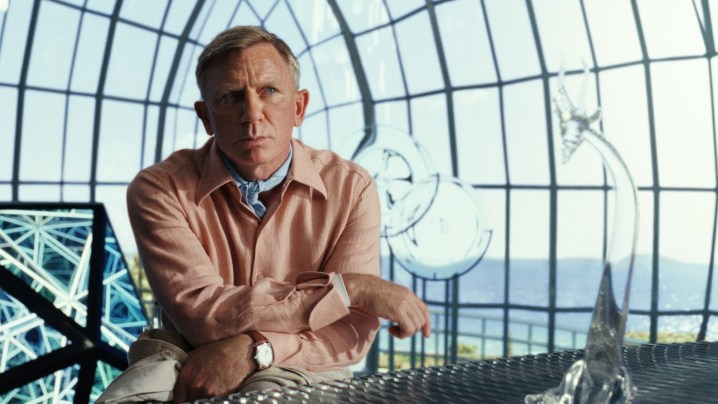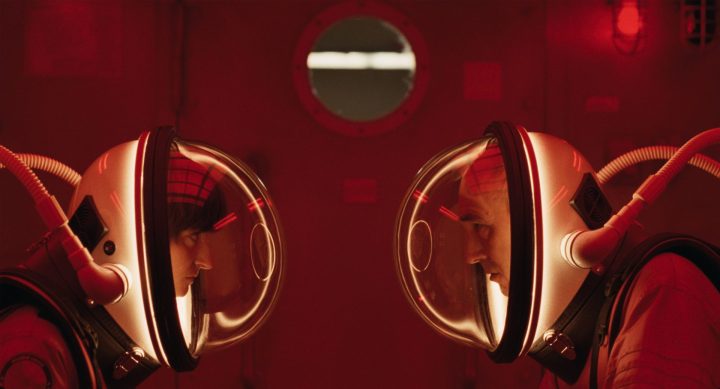This was not a TIFF for the ages, and that’s okay: Not every edition of this annual week-plus getaway for cinephiles and cine-sellers is going to offer a string of masterpieces. This year, especially, it was enough that the festival happened at all, returning in full force after those two odd years of remote attendance. I was happy to be back on the ground, racing between the Scotiabank and the Lightbox, augmenting a steady diet of hastily wolfed fast food with the occasional more leisurely meal with friends. So what if the twinkling Steven Spielberg memory play that melted my peers into effusive puddles left me just a little cold? I got to see it on a massive screen, to bask in the glow of the theatrical experience. Even when the movies weren’t great, that was.
And don’t get me wrong: Plenty of the movies were almost great. These were the best ones I saw over the past week—a typically eclectic collection of Cannes holdovers and Toronto world premieres that took me into the distant past and the near future, to outer- and inner space, and far beyond.

1. De Humani Corporis Fabrica
The radical new documentary from Verena Paravel and Lucien Castaing-Taylor (Leviathan, Caniba) probes the innards of several Parisian hospitals, racing through the bloodstreams of its hallways and scoping the personalities of its practitioners, before going much deeper still, into the bodies being operated upon. To the squeamish, De Humani Corporis Fabrica might look like something of a horror movie, showing the squishy private workings of the brain, bowels, and everything in between with a close-up explicitness rarely seen outside of med school. But I found this fantastic voyage stealthily moving, both in the strange beauty it locates in the architecture of our internal life systems and in the spotlight it throws on the men and women who fix those systems for a living. It showed me the world in a way I’d never seen before.

2. Godland
A Danish priest (Elliott Crosset Hove) sets out on a pilgrimage across the inhospitable Iceland of the 19th century, then a colony of his homeland, to help establish a new parish. Along the way, this slender, awkward traveler betrays his weaknesses as man and man of God, slowly nursing an intense grudge against the expedition’s guide (Ingvar Sigurðsson), his polar opposite in rugged adaptability, lack of intellectual pretension, and lurching size. Hlynur Pálmason follows up the fascinatingly enigmatic bereavement drama A White, White Day with a wilderness odyssey as interested in the landscape of its character’s minds — their fears, their desires, their petty resentments — as it is in the striking scenery. Godland takes its time, but I cherished every minute spent in its vividly evoked old world, where Pálmason finds conflicting notes of bitterness and tenderness. About the biggest compliment I can pay the movie is that its portrait of arduous travel brought to mind Kelly Reichardt’s grim oater Meek’s Cutoff, the very first great movie I ever saw in Toronto, more than a decade ago now.

3. Decision to Leave
Park Chan-wook’s latest might be the least perverse film that the Korean sex-and-violence maestro behind Oldboy and The Handmaiden has ever directed — a detective story that gradually morphs into a melodrama of seduction and suppressed desire. But Park tackles the material with a frankly stunning breadth of visual invention, elevating even the simplest conversations with the elegance of his compositions and fluid flow of his cuts. It’s very easy to see how he won Best Director at Cannes this past summer — Decision to Leave is a prime example of how a great filmmaker often finds an interesting way to stage every single moment of their movie. The film’s ace in the hole, meanwhile, is the remarkable Tang Wei, doing an emotionally complex variation on the femme fatale, in what amounts to maybe her best role since Lust, Caution.

4. Aftersun
At a Turkish seaside resort, a father and his 11-year-old daughter enjoy a multi-day holiday of poolside relaxation, pleasant meals, and late-night karaoke. Gradually, it becomes clear that these are memories — little snapshots of a significantly insignificant few days from a woman’s past, framed by a powerful sense of retroactive melancholy the movie stops short of explicitly explaining. Charlotte Wells’ debut feature, another Cannes premiere (are we seeing a pattern here?), is the definition of a “small” movie, its focus never widening beyond the mundane pleasures and subtle emotional distress of the vacation it depicts. But Wells has a great eye (there are some unforgettable moments here, like a father-daughter conversation captured at first by a running video cam, then in the reflection of the TV after the camera is shut off), and a great feel for the little details of a trip that can add up in a person’s mind, turned over again and again until they’ve solidified into personal legend.

5. R.M.N.
Cristian Mungiu, of 4 Months, 3 Weeks, and 2 Days fame, remains my favorite of the Romanian New Wave filmmakers, in part because he structures his movies like ticking time bombs of tension. His latest tells a sadly timely (and even more sadly timeless) tale of escalating racial intolerance in a small Transylvanian village renowned for its European diversity but not so accepting of anyone who might actually diversify its population. The film’s power comes not just from the outraged verisimilitude of its conflict (a microcosm for what’s happening all over Europe, and so much of the rest of the world), but also the way Mungiu mysteriously parallels the town’s white-nationalist ordeal with the lumbering exploits of his main character, a simmering lump of inarticulate rage whose role in the proceedings remains pointedly noncommittal. The power of the film may lie in how these two stories intersect, and in how they refuse to.

6. The Banshees of Inisherin
Leaving behind the flavorful outsider-view American Southwest of his divisive Three Billboards Outside Ebbing, Missouri, Martin McDonagh returns to his native Ireland but once more indulges his affinity for intensely butting heads. In this case, the conflict is between two friends on a small fictional island when one of them (Brendan Gleeson) suddenly decides, unprovoked, that he no longer wants anything to do with the other (Colin Farrell), and will go to extreme lengths to make himself understood on the matter. This In Bruges reunion scores enormous laughs, many of them courtesy of Farrell, demonstrating once more what a late-discovered talent he has for playing sad sack losers. But the film’s inspired comic premise contains wellsprings of hurt (wouldn’t it be wrenching, to be told without warning that your best friend can’t stand you anymore?) and McDonagh uses it to gently mirror the larger forces of civil war tearing a country apart, just beyond the borders of a deceptively idyllic community.

7. Glass Onion
Critics wouldn’t complain so much about Hollywood’s franchise addiction if the IP blockbusters it spit out were all as nimble and thrilling as Rian Johnson’s Benoit Blanc mysteries. Glass Onion, his second star-powered whodunit, isn’t quite as elegant or affecting a subversion of the genre as his first, Knives Out. But it’s first-rate fun all the same, especially once Johnson starts doubling back on his story, revealing the hidden layers of motive and subterfuge lurking behind a deviously labored opening act. The appeal of these movies is at once old-fashioned and new, reinventing a timeless gumshoe tradition through the steel-trap of Johnson’s puzzle-box imagination and the clarity of his class politics.

8. Viking
Eight years after making a small splash at TIFF with his achingly good coming-of-age comedy Tu dors Nicole, writer-director Stéphane Lafleur returns with a deadpan gem about an odd simulation: While a manned ship heads for Mars, five people on Earth — each selected for their emotional and psychological similarity to one of the astronauts en route to the red planet — try to anticipate and troubleshoot the real conflicts arising or likely to arise between their counterparts in space. Lafleur plays the scenario for absurdist laughs while exhibiting a deep curiosity about the way we all manage and try to anticipate our emotional responses to everything. One might imagine a more brain-bending treatment of the premise, but I was quite taken with this understated take, which just might double as Lafleur’s commentary on the essential absurdity of filmmaking, too.
For more of A.A. Dowd’s writing, please visit his Authory page.



